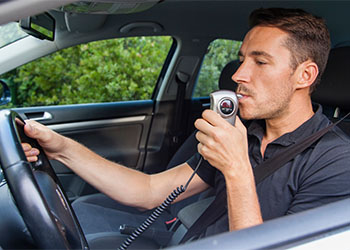What You Need to Know About a DUI Checkpoint
Oct. 18, 2023
 In 2022, the Colorado Department of Transportation (CDOT) reported that there were 271 impaired driving fatalities in the state, an increase of 255 the year before. Colorado, like all states, takes impaired driving seriously, and one of the deterrents police employ are DUI (driving under the influence) checkpoints.
In 2022, the Colorado Department of Transportation (CDOT) reported that there were 271 impaired driving fatalities in the state, an increase of 255 the year before. Colorado, like all states, takes impaired driving seriously, and one of the deterrents police employ are DUI (driving under the influence) checkpoints.
In most situations, police must have probable cause to pull a driver over or arrest someone. Probable cause usually means they have witnessed an act or action – even the failure to act properly – to stop or question someone. The U.S. Supreme Court, however, has ruled that, in the case of impaired driving, the risk is too great, so roadside checkpoints are permitted – with strict guidelines.
If you are approaching a DUI checkpoint, you may wonder what to expect and your rights. If you have been drinking you can be asked to get out of your vehicle and go to the side of the road, where tests may be administered. Also, it is possible to be taken in for a chemical (blood) test. As a result, you could end up with a DUI charge.
If you are facing a DUI charge in or around Boulder, Colorado, contact me at the Watkins Law Firm LLC. I am Attorney Jennifer Watkins, and I have more than 20 years’ experience in helping people develop strong strategies against DUI and other charges. I will stand by you and work for the most favorable outcome possible. I also proudly serve clients In Longmont, Louisville, Lafayette, and Broomfield, Colorado.
DUI Checkpoints in Colorado
The Colorado Department of Transportation (CDOT) has issued a manual titled “The Use of Checkpoints for Impaired Driving Enforcement,” detailing how checkpoints should be set up and operated, and how those running them should be prepared and trained. The manual states: “The purpose of the program is to maximize the deterrent effect and increase the perception of ‘risk of apprehension’ of motorists who would operate a vehicle while impaired by alcohol or drugs.”
CDOT and the courts require those agencies operating checkpoints to follow established procedures, one of which is to ensure that public safety is observed. These procedures include proper site selection and steps taken to avoid a “traffic backup.” In addition, the checkpoint should be announced in advance, and while in operation, motorists should have advance warning through the use of lights, signs, and the like.
The manual requires those operating the checkpoint to use a systematic approach. The examples it gives are stopping every five vehicles or stopping every vehicle. A scattered approach is not advised, but what is advised is to rework the approach if traffic starts to back up. Checkpoints should be designed and operated to cause as little inconvenience to drivers as possible.
Of course, if you are one of the fifth drivers – or if they’re checking every motorist – you will be stopped and asked for your driver’s license and registration and also asked if you have consumed any alcohol or drugs. If the officer smells alcohol on your breath or is otherwise suspicious that you may be impaired, you will be escorted to a location at the side of the road where tests will be conducted.
Your Rights at a DUI Checkpoint
If you know of a planned checkpoint, you have every right to avoid it by using a different route. This may require monitoring law enforcement websites to see if any checkpoints are being planned, however. Even if you come upon a checkpoint while driving, you can make a legal u-turn to avoid it, or reroute your vehicle in advance, if that’s possible.
If you have not been drinking or using drugs, a checkpoint stop should go smoothly and quickly unless you cause the officer to be suspicious through your words, actions, or attitude.
If you are escorted to the side of the road for a field sobriety test or a breathalyzer test, you can refuse to do them, but you will then likely be taken in for a chemical (blood) test. If you refuse that, your driving privileges will be revoked. You will also receive the designation of “persistent drunk driver” in the State of Colorado, even if it’s only your first such incident.
What to Do If You’re Arrested for a DUI
If you are arrested and authorities want to ask you questions, they must read your Miranda Rights, which includes the warning: “Anything you say can and will be used against you in a court of law.” Don’t answer any questions without contacting an experienced DUI defense attorney. You may think that, by cooperating, you can get more favorable treatment, but that is certainly not guaranteed. Exercise your right to remain quiet and obtain qualified legal counsel.
Work With a Trusted DUI Attorney
In Boulder and surrounding communities, contact me at the Watkins Law Firm LLC immediately when facing a DUI investigation or charge. I have more than two decades’ experience in helping others in your situation. Together, we can develop a strategy moving forward to achieve the best possible outcome. The strategy may well include presenting your side of the story to prosecutors. In any event, reach out immediately.
